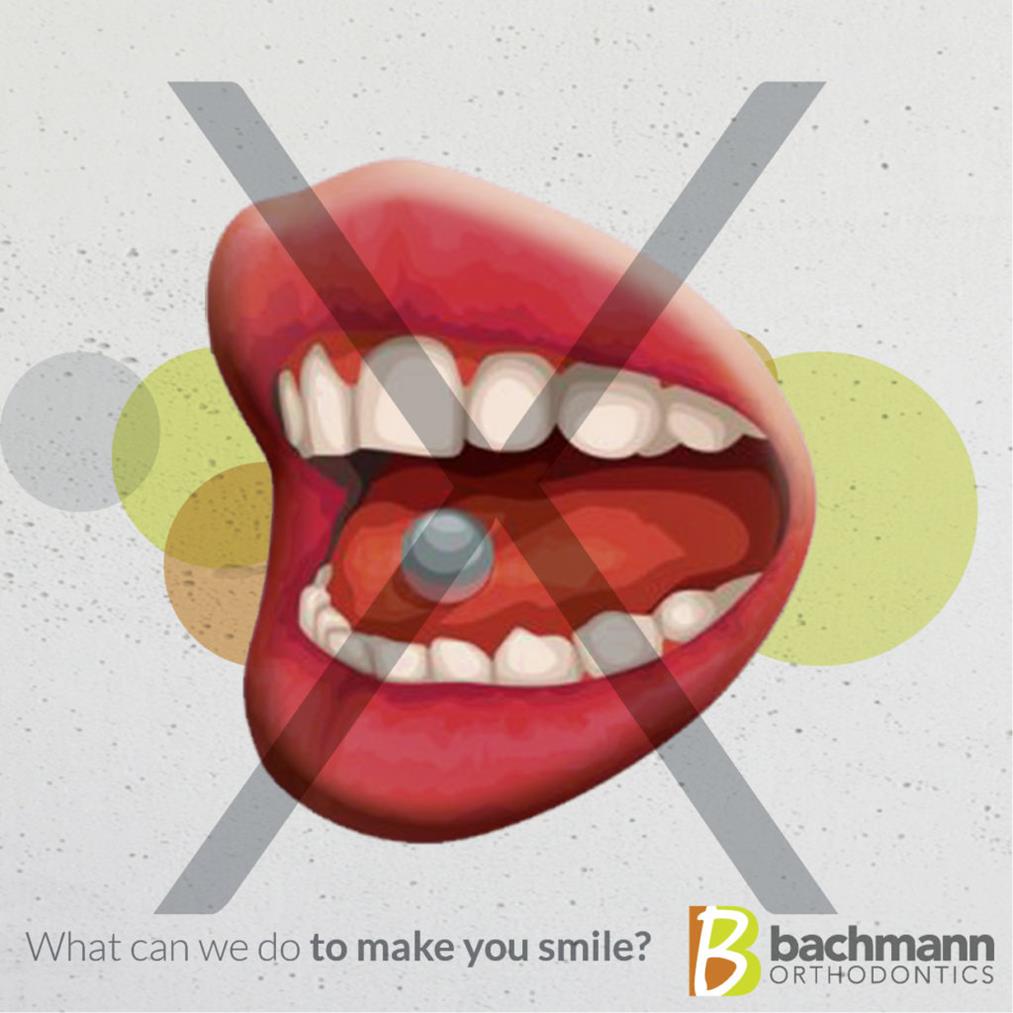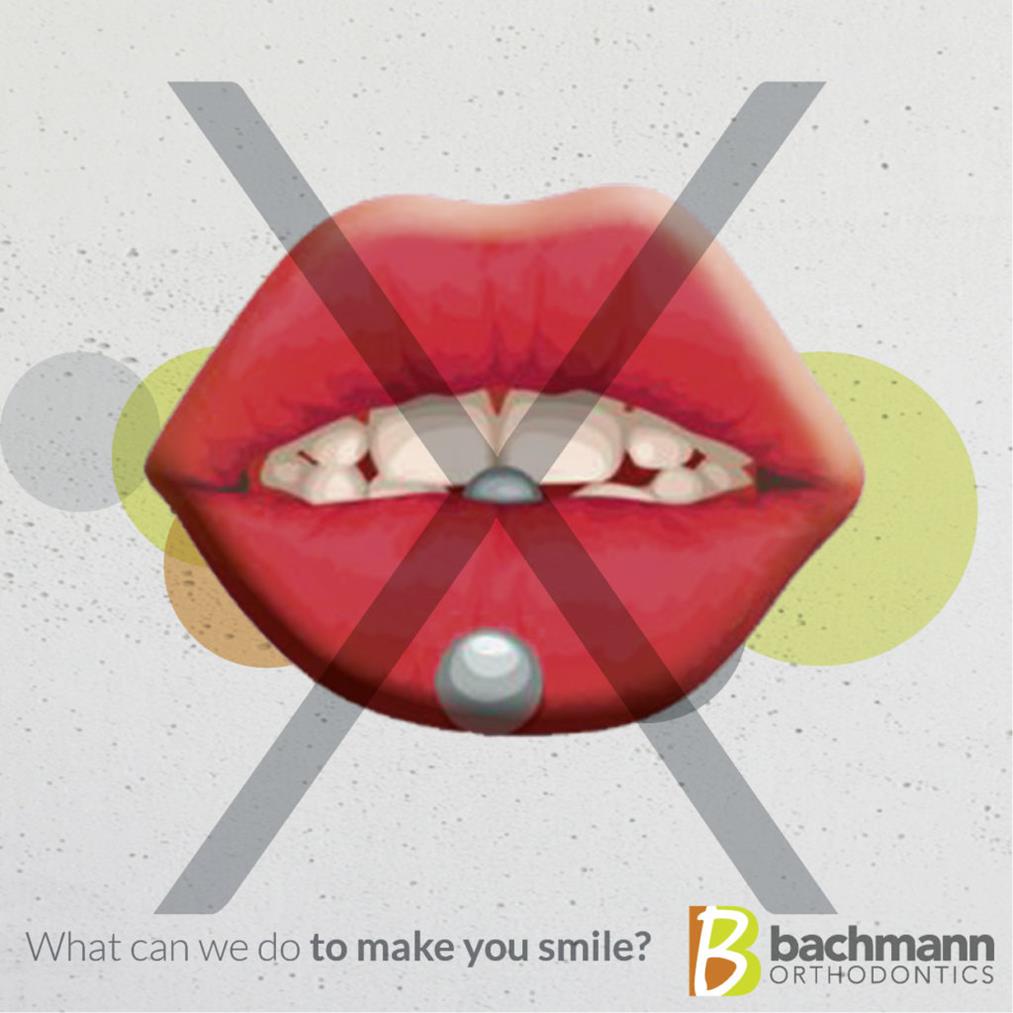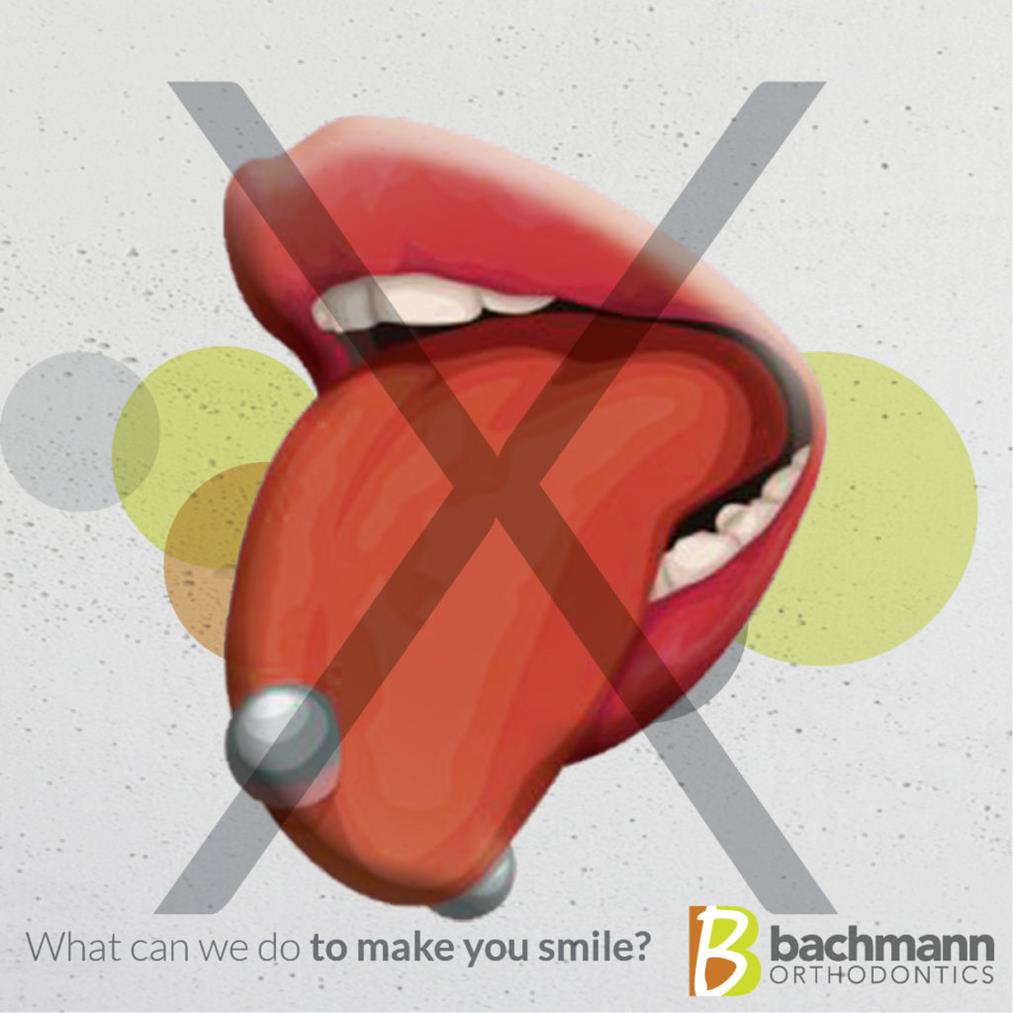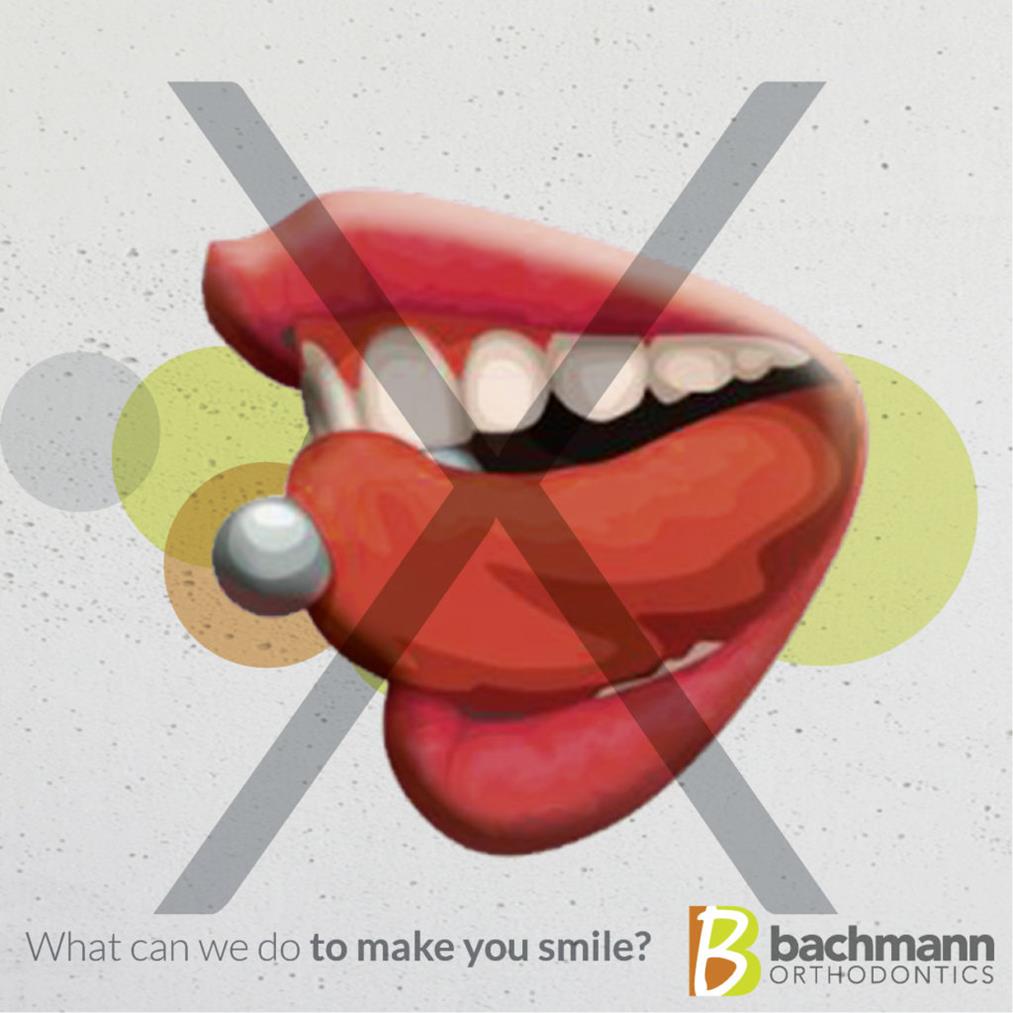
Oral piercings and braces are not a good combination. Drs. Lutz and Claudia Bachmann share with their patients the threats oral piercings pose when it comes to oral health and orthodontic appliances.
So, you love your oral piercings. But how do you feel about chipped teeth, receding gum lines and adding months to your orthodontic treatment?
“I love that my patients have all developed their own unique ways of expressing their individuality,” says Lutz Bachmann, a family orthodontist who provides orthodontics for adults and children. “However, I’m not a fan of oral piercings because of the havoc they’re known to wreak on teeth, appliances and health.”
Since the health of our patients and their mouths are what is most important to us, let’s start with the reasons why oral piercings aren’t synonymous with a healthy mouth.

1.) Infection
Everyone likes to think they have a clean mouth, however, on average “800 to 1,000 different bacteria may call your mouth ‘home,’” says Dr De Vizio of Colgate.
When you get an oral piercing, the open wound gives these bacteria a direct route to your bloodstream. And playing with and changing the jewellery only introduces more strains into the mouth. A piercing also leaves one more nook for food to get trapped in, providing additional food and breeding ground for bacteria; bed and breakfast for bacteria, if you will.

2.) Nerve Damage
There are many nerves and blood vessels in the tongue and several ways they can be damaged by piercings. First, if the piercer accidentally hits a nerve or wrong blood vessel, there is a chance you will suffer from numbness or excessive bleeding. Second, if your jewellery gets hung in your braces or anything else, there is always the possibility that it could be ripped from your mouth and result in scarring or nerve damage as well.

3.) Gum Disease
A large number of people with oral piercings experience gum erosion, which if not stabilized can lead to tooth loss and even death.
“Patients often have an overwhelming urge to play with oral jewellery, but even if they don’t, the gums still incur constant trauma from contact with the lip or tongue ring,” says Dr Claudia Bachmann. “Over time the jewellery wears the gums away, exposing the tooth’s root.”
Once the gums recede, they do not grow back, and the exposed roots make patients prone to gum disease and tooth loss.
“I’ve seen gum recession in patients who have had their piercing for as little as six weeks,” says Dr Lutz. “It happens fast and is especially difficult to spot in cases of tongue piercings since the damage is often isolated to the area behind the teeth. Patients should remove their jewellery at the first sign of erosion and seek treatment which often involves a skin graft if decay or infection hasn’t already occurred.”

4.) Damaged Teeth
Teeth can be chipped or fractured while eating, talking and even sleeping when there is an oral piercing involved.
“The most common problem we see is patients wanting to chew on their metal barbells or run them across the backs of their teeth like they’re playing a xylophone,” says Dr Claudia. “This constant contact is disastrous for teeth and if a patient falls or their head is jarred while they are chewing on their jewellery it often results in chipping.”
Even the constant drip of water can carve a hole in a stone. So you can only imagine what metal does to a tooth when it is constantly rubbed against it. Enamel does not regenerate itself so when it’s gone patients experience extreme sensitivity, discomfort and possible need for extraction.
Many pierced patients request Invisalign under the impression that it will protect their teeth from damage. While Invisalign does cover the surface of each tooth, it’s a common misconception that it makes having oral piercings safe. It does nothing to protect the gums from the constant contact and pressure that erodes them permanently, which is the most problematic type of damage caused by piercings.

5.) Longer Orthodontic Treatment
It’s great if you enjoy wearing braces, but the fact of the matter is that most patients don’t, which is just one more reason why we don’t approve of oral piercings during orthodontic treatment.
While being treated with orthodontics even things as hard as an apple have the potential to dislodge brackets and bend archwires. When the jewellery in your mouth gets hooked to your braces, it can happen so fast that before you know it, you’ve either broken your braces or your jewellery has torn from your tongue or lip, which as you can imagine, is not a pretty sight. Damaged braces or a massive amount of oral trauma has the potential to add months to your orthodontic treatment.

What If You Can’t Give Them Up?
“At Bachmann Orthodontics we are extremely against oral piercings and will not treat a patient unless they agree to remove their oral piercing(s),” says Dr Lutz. “We hope our stand against piercings speaks volumes to their dangers and causes those with piercings or considering them to think twice before subjecting their smile to irreversible damage. You only get one set of adult teeth; we want them to last.”

